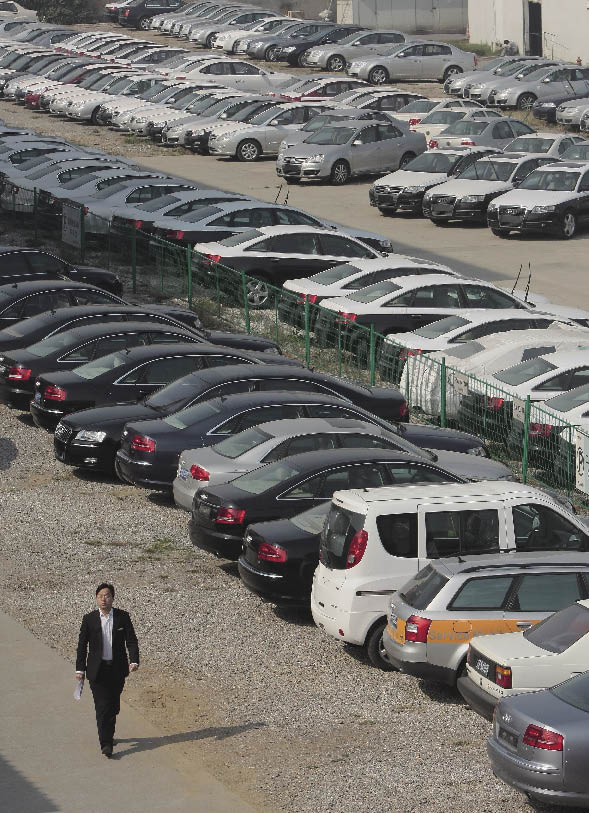|
Auto Dealers Offer Big Sales
 |
|
Car sales are sliding. |
After Beijing launched a policy allowing car owners to pick the numbers on their license plates in October 2008, Tian Li thought it was time to buy a car. With RMB 100,000 from his parents and a loan of RMB 150,000 from the bank, he soon drove home a sleek Toyota Reiz. "It is easy and quick to apply for a loan, and there is no interest for two years." The young man got the vehicle three days after filing his application.
Offers by dealers and lenders haven't enticed many, however. Most people show no desire to purchase a big item with borrowed money in such uncertain economic times. As a result auto salespeople are becoming desperate, and pull out all the stops for potential customers. Tian Li's friends who accompanied him to car stores were bombarded by overly ardent agents. "With the sales pressure mounting, we cannot miss any chance," commented one car salesman.
In 2007 the output of China's auto industry rose 22 percent to 8.88 million vehicles. At the beginning of 2008 insiders looked forward to seeing production hit 10 million by the end of the year, based on an expected annual growth of 13 percent. That target began to look impossible in the latter half of the year, when a slide was reported in car sales across the nation. The decline exceeded six percent in August. A minor recovery the next month couldn't reverse the overall downward trend.
Shi Zubo of Jiangling Motors Co., a leading Chinese vehicle maker, admitted that his company saw a 30 percent drop in sales in December 2008. "Losses could be more grievous with home carmakers," he added grimly.
Jiangling Motors has joined other manufacturers in staging aggressive promotional campaigns. But customers are largely holding onto their cash. "The RMB 100,000 I put into the stock market doubled in the first half of 2008, but soon began to diminish. Only half the sum is left now," groans Mr. Kou, a state-owned enterprise employee. He was betting share prices would reach new heights, so he could buy a better car with the extra dividends. Instead, his investment contracted to half the car's value. His wife complains that he has nothing to blame but his own greed. His family no longer has the urge or means to buy a car in the immediate future.
Estimates show that in 2007 China's car industry engendered RMB 600 billion worth of direct consumption, and generated RMB 300 billion in fees and taxes. Its contribution to other sectors higher and lower in the industrial chain was also huge. When car sales drop, all these other sectors are also affected.
"While buying power and consumer desires don't disappear over a short period, the problem is consumers' weak confidence in the future," explains Xu Changming, chief of the Information Resources Exploration Department of the State Information Center.
Now carmakers and dealers are pinning their hopes on a reduction or abolition of the automobile purchase tax, a proposal that has been presented to the relevant government authorities for approval. Once passed, it will become the latest bold stimulus for the ailing car industry.
Home Sales Frozen
For China's contemporary urban dwellers, a car and a home are the two primary benchmarks of a decent life. The latter carries more weight, as owning a house has always been equated with economic security and maturity in Chinese culture.
Li Jun, however, regrets he didn't sell his apartment earlier. "If someone offers me the price at which I bought it, I will take it without hesitation."
| 